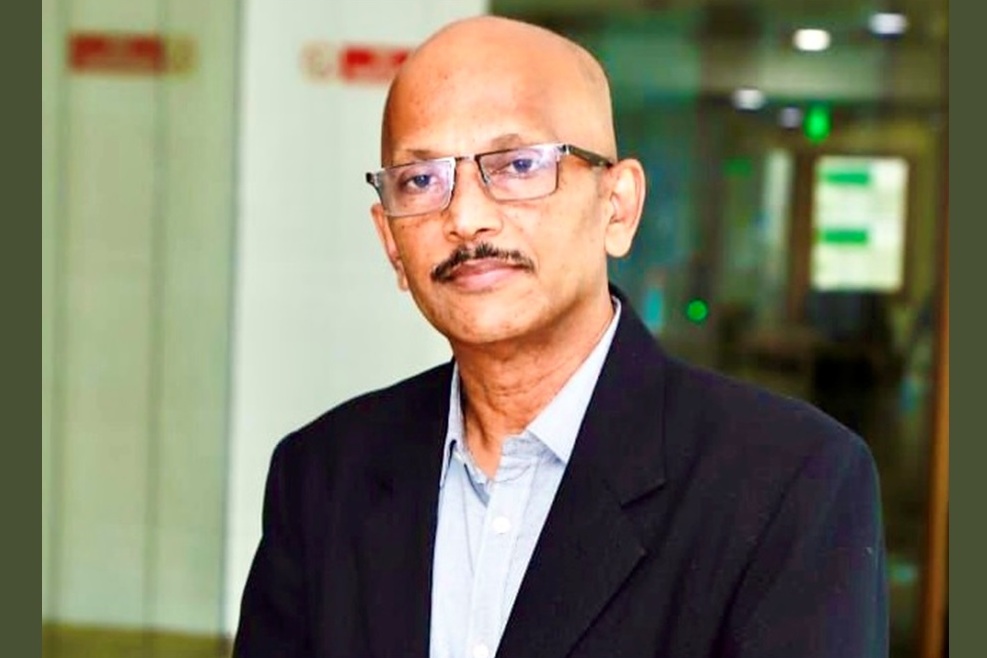Few leaders straddle the worlds of finance, social impact, and education with as much clarity and conviction as Mr. Nixon Joseph, Group Executive Director at DEVI Sansthan. A former President of SBI Foundation and a seasoned banker with over three decades at the State Bank of India—including global leadership roles in Tokyo and Bahrain—Mr. Joseph has long championed meaningful, systemic investments in social development. His work has consistently focused on strengthening education, building sustainable communities, and supporting high-impact programmes aligned with national priorities.
At DEVI Sansthan, he brings this unique blend of strategic insight and on-ground experience to the mission of Foundational Literacy and Numeracy (FLN). His commitment to scalable, evidence-based solutions—shaped by his years leading CSR initiatives, advising development organisations, and collaborating closely with government systems—gives him a front-row view of what truly moves the needle in early-grade learning.
In this article, Mr. Joseph cuts through the noise to make a compelling case: India cannot afford to treat FLN as optional, and corporate social responsibility must prioritise what actually works. Drawing on policy, research, and successful models like DEVI Sansthan’s ALfA (Accelerating Learning for All) programme, he underscores how smart, aligned, and accountable CSR can accelerate national goals under NEP 2020 and NIPUN Bharat, offering a clear and urgent roadmap for how government, the development sector, and corporate India can work together to ensure every child learns to read, write, and thrive.
Catalysing FLN through Corporate Social Responsibility: The Development Sector’s Shared Mission
Reading and math—these are the real building blocks of our schools. The National Education Policy 2020 doesn’t sugarcoat it: getting kids solid in foundational literacy and numeracy (FLN) is one of India’s biggest priorities. By the time kids finish Grade 3, they’re supposed to have these basics down. That’s what the NIPUN Bharat campaign is for. Still, even with plans like this, way too many kids fall behind.
Corporate Social Responsibility (CSR) doesn’t have to be just about looking good. It can actually change things, if companies take it seriously. When businesses go beyond surface-level donations and really work with schools, their investments—whether it’s new science labs, digital tools, or training teachers—start to mean something. But here’s the thing: most CSR money goes to things like computer labs, libraries, tablets—maybe some STEM or English classes. That all sounds impressive, but it only works if kids can already read, write, and do basic math. If they can’t, all that shiny tech and fancy software just sits there, unused. Kids get frustrated, teachers waste time, and nothing really improves.
ASER surveys and government numbers just repeat the message: yes, kids are showing up at school, but too many aren’t learning the basics. This isn’t some side problem. If you skip FLN, every other education investment falls flat. Let’s talk numbers for a second. The latest ASER report shows a bit of improvement, but let’s be honest, we’re not where we need to be. COVID made things worse—reading and math scores dropped. There’s been some bounce-back, especially in reading for Grades III and V, but most kids still aren’t on track. Even fewer are strong readers.
We need real, focused action on FLN, and honestly, the whole system has to step up. Some CSR donors are catching on. More and more companies and foundations are moving past the usual one-time donations and getting behind FLN in a big way. Look at the Reliance Foundation—they helped launch LiftEd, a project that follows NIPUN Bharat’s roadmap and tracks FLN progress for millions of kids. Tata Trusts is putting serious effort into early grade support and teacher training, making sure classrooms actually get what they need. The Azim Premji Foundation is building practical guides and resources just for FLN, so teachers have real tools to help kids. SBI Foundation is partnering for strengthening FLN in schools in Ranchi. These aren’t random acts of charity—they’re smart, they line up with government plans, and they actually work.
So what does strong CSR support for FLN look like? First, it needs to line up with the system. Use NIPUN Bharat standards and tools, so everyone’s looking at the same scoreboard. Second, back up teachers. Training, coaching, and good classroom materials help teachers do their jobs better—way more than just handing out tech. Third, invest in short, sharp programs. Daily FLN sessions with volunteers or para-teachers can really move the needle, if designed well. Fourth, measure and plan for growth. Budget for outside assessments, and work with state governments so pilot programs can actually scale up. Fifth, bring in the community. Libraries, reading drives, getting parents involved—these things keep the momentum going, even after a project ends.
One program that really stands out is ALfA (Accelerating Learning for All) by DEVI Sansthan. Over just 30 to 45 days, they use paired learning, hands-on lessons, and daily practice, and kids actually start reading and doing math. Independent studies show strong results, even in the short term. Programs like this, with real CSR backing for training, materials, and partnerships, help government schools use methods that actually work. Bottom line: everyone’s got a role. The system, donors, the community—they all matter. NEP 2020 calls for FLN to be part of every curriculum, every teacher training session, every school’s daily routine. CSR can help speed things up—by funding what works, supporting teachers, measuring progress, and partnering with schools and districts. The real goal? Invest in smart, scalable programs that give every child a shot, fit right into the state system, and actually show results by NIPUN standards. That’s how we make real progress.








.jpg)










